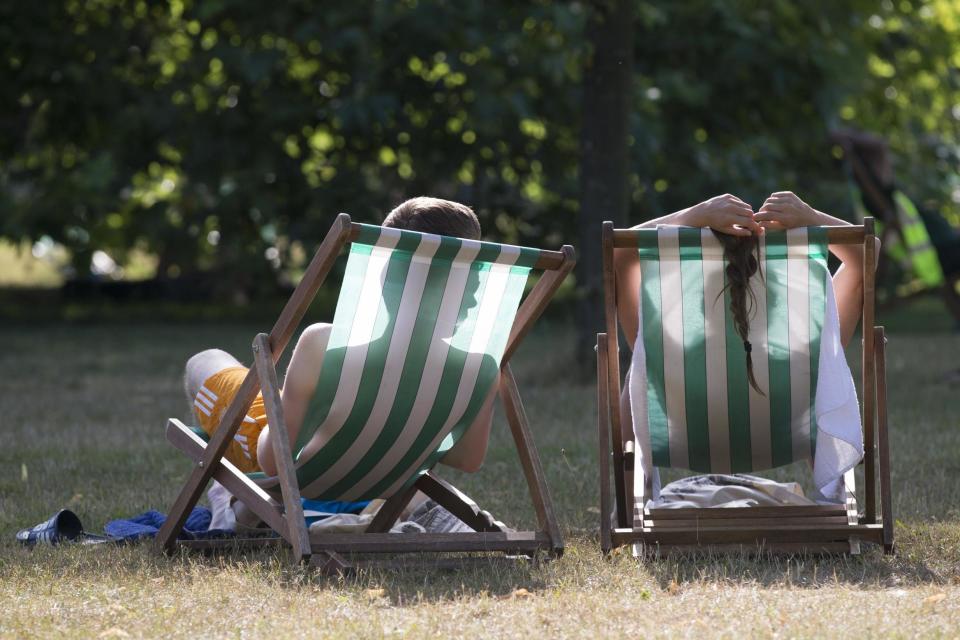London weather forecast: UK hotter than Morocco as temperatures hit 23C over Easter weekend
Brits are facing a scorching Easter weekend as temperatures soar to 23C on Saturday – hotter than Morocco.
London is set to be ten degrees hotter than average for this time of year as Brits take advantage of the warm weather over the bank holiday.
Dry and sunny weather is expected across the UK, with the south seeing the best of it.
The highest temperature recorded over an Easter weekend was 27.8C in Wisley, Surrey, in 2011.
Temperatures will be on the rise through the #EasterWeekend 🐰🐣 pic.twitter.com/l6svEHucZY
— Met Office (@metoffice)
Met Office Chief Meteorologist, Steve Willington said: "From Wednesday, temperatures will start to rise day by day and with the sun getting stronger at this time of year, it’s going to feel warm or very warm by the time we get to Good Friday and Easter Saturday."
“Temperatures will reach into the low 20s Celsius quite widely and there’s a good chance some places in the south could see temperatures peaking around 23 Celsius.
“With temperatures usually around 10 to 13 Celsius at this time of year, it’s certainly going to be significantly warmer than average this Easter weekend and quite a contrast to the colder weather we have seen so far this month.
“It currently looks like more changeable and cooler weather will arrive from the northwest from Easter Sunday, however there remains the chance that southeastern parts of the country could remain warm and settled into Easter Monday.

“With this uncertainty in mind, our advice is to keep up to date with the latest forecast if you are making plans.”
Brits face a potentially deadly “pollen bomb” as the weather warms, with the arrival of hay fever season coming three weeks early.
Birch pollen is normally released into the air for around four weeks every year, but an unusually warm winter is believed to have brought its pollination time forward.
#UV levels will be moderate in the strong sunshine today 😎
The fine weather will also bring high levels of #Pollen 🤧🌺 pic.twitter.com/RXmmbOVAWw— Met Office (@metoffice)
City parks and streets are lined with birch trees, meaning they could be worse hit by the “pollen bomb” than parts of the countryside.
Pollen forecasters further warn that the grass pollen season – which usually starts in late May – could start early too.

 Yahoo News
Yahoo News 
